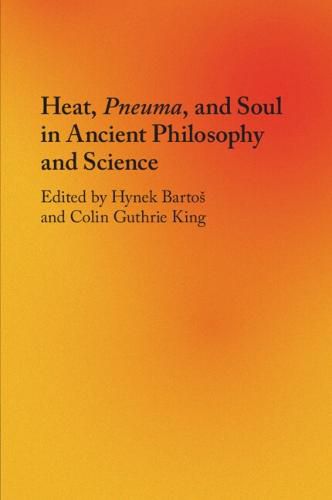Readings Newsletter
Become a Readings Member to make your shopping experience even easier.
Sign in or sign up for free!
You’re not far away from qualifying for FREE standard shipping within Australia
You’ve qualified for FREE standard shipping within Australia
The cart is loading…






The conceptualization of the vital force of living beings as a kind of breath and heat is at least as old as Homer. The assumptions that life and living things were somehow causally related to 'heat' and 'breath' (pneuma) would go on to inform much of ancient medicine and philosophy. This is the first volume to consider the relationship of the notions of heat, breath (pneuma), and soul in ancient Greek philosophy and science from the Presocratics to Aristotle. Bringing together specialists both on early Greek philosophy and on Aristotle, it brings an approach drawn from the history of science to the study of both fields. The chapters give fresh and detailed interpretations of the theory of soul in Heraclitus, Empedocles, Parmenides, Diogenes of Appolonia, and Democritus, as well as in the Hippocratic Corpus, Plato's Timaeus, and various works of Aristotle.
$9.00 standard shipping within Australia
FREE standard shipping within Australia for orders over $100.00
Express & International shipping calculated at checkout
The conceptualization of the vital force of living beings as a kind of breath and heat is at least as old as Homer. The assumptions that life and living things were somehow causally related to 'heat' and 'breath' (pneuma) would go on to inform much of ancient medicine and philosophy. This is the first volume to consider the relationship of the notions of heat, breath (pneuma), and soul in ancient Greek philosophy and science from the Presocratics to Aristotle. Bringing together specialists both on early Greek philosophy and on Aristotle, it brings an approach drawn from the history of science to the study of both fields. The chapters give fresh and detailed interpretations of the theory of soul in Heraclitus, Empedocles, Parmenides, Diogenes of Appolonia, and Democritus, as well as in the Hippocratic Corpus, Plato's Timaeus, and various works of Aristotle.